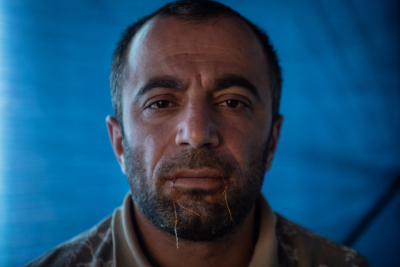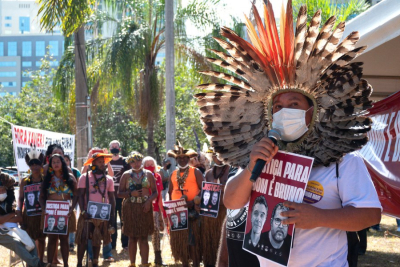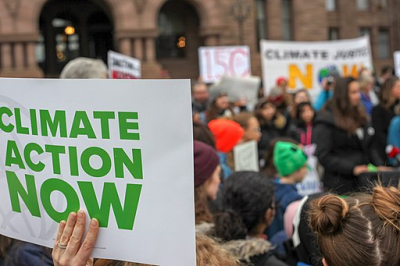On April 17 and 18, 2020 three Brest activists – Dmitry Bekalyuk, Alexander Kabanov, and Dmitry Androsyuk – were detained before the “feeding of pigeons” – a weekly Sunday protest against a battery factory carried out by the citizens of Brest. The activists were allegedly detained so that they couldnʼt participate in the protest on April 19, 2020.
On April 20, the Leninsky District Court of Brest sentenced Dmitry Androsyuk and Alexander Kabanov to 15 days of administrative arrest for participating in an unsanctioned protest on April 12. Dmitry Bekalyuk was also sentenced to 15 days of administrative arrest two days later. The three men were participating in weekly peaceful protests against the “iPower” battery plant in Brest.
Feeding the pigeons
Since the beginning, there have been issues with the project. For example, the public was not involved in the discussion of the possibility of building a battery plant at an early stage. Moreover, adequate information was not provided when changes were being made to the project and the Environmental Impact Assessment (EIA) report was being adjusted. Public opinion wasnʼt taken into account in the decision making. This significantly reduced the degree of people’s trust in local authorities, which resulted in spontaneous meetings on Lenin Square in Brest on Sundays.
Since February 25, 2018, “feeding the pigeons” has taken place every Sunday on Lenin Square in Brest – a peaceful protest during which the Brest residents gather, communicate, exchange news about the battery plant, and thus silently and peacefully protest against its construction. Over the period of these gatherings, many Brest citizens have been detained or fined, and they were charged with violating the established procedure for holding a mass event. 37 thousand signatures against the plant were collected, which were sent to the presidential administration. However, the governmental commission did not find any violations in the implementation of the project. Constructive dialogue between the authorities and the public did not work.
People have been trying to find a legal and official way to express their opinion. Throughout the entire period of the protests, a great number of applications were submitted in Brest and the Brest region, specifically for 325 rallies, 18 pickets, and 16 demonstrations.[1] The authorities allowed only one of them: the rally “Brest Women Against Lead” on April 29, 2018, which was attended by about two thousand people.[2]
The main bases for the refusal are: “at the stated time another event has already been planned at the indicated site” or “repair work is being carried out at the declared place”. However, there is no list of previously planned events that is publicly available. Also, there is no public access to information on repair work at sites intended for mass meetings, and the city authorities donʼt allocate another place or date, thus preventing the citizens from officially and legally exercising their rights.
More people arrested
It is also important to mention that over the last two years, the Belarusian government has liquidated almost all active environmental organisations. Many environmental activists have been arrested and convicted of administrative violations or criminal activity. Many of them were forced to leave the country.
But let’s go back to the battery plant in Brest. Have the numerous protests of Brest residents brought results? The protests delayed the plans for the construction by about a year. Before the 2020 elections, even Lukashenko himself came to Brest. He talked with the activists and vowed not to build the plant if the residents were against it, even promising to hold a referendum on the issue. In March 2021 the “Accumulator Alliance” LLC battery plant started work. Of course, without any referendum.
The opponents of the plant came under pressure again. In September 2021, Dmitry Androsyuk was accused of refusing to testify in a criminal case against the Brest bloggers Sergey Petrukhin and Alexander Kabanov, who, in April, 2021 were sentenced as political prisoners to three years in a general regime penal colony. According to Androsyuk, the context of the situation was quite different. He was a witness in the case against the Brest bloggers. On February 19, 2021, he was forcibly taken to the Brest Regional Court. There the judge intended to interrogate him by video link. Androsyuk demanded that he show his official ID in accordance with Article 72 of the Code of Judicial System and the Status of Judges. “This is a matter of principle for me. I want to know reliably who addresses me. In any situation,” explained Dmitry Androsyuk to human rights defenders. But the judge ignored the requirement, and then Androsyuk started to ignore his questions. This was regarded as a refusal to testify. Androsyuk was sentenced as a political prisoner to three months in prison, from November 27, 2021 to February 26, 2022.
The environmental situation in Belarus is in a downward spiral
For a wider understanding of the problem of the battery plant in Brest, it is important to add that the battery plant has been built in the “Brest” free economic zone. The free economic zones of Belarus are located in every regional centre and are practically not taxed. That is why they are attractive for all kinds of businesses.
Now, when the battery factory is active, we have two claims about its safety for the residents of the Brest area. One is coming from the state and public Environmental Control Group.[3] “According to the results of comprehensive environmental monitoring conducted in 2021, no exceedances of permissible standards for pollutant emissions were detected.” From the environmental activistsʼ side opposite opinions are coming. They believe that the presence of the battery plant on its current site could lead to an environmental catastrophe. They are pointing to the fact that the toxic waste during the building of the battery plant repeatedly exceeded the normative amounts, although the plant was officially still in the commissioning stage and had not yet started operating. The stated level of emissions, stipulated before construction, was exactly three kilograms of hazardous waste per year. The number is taken on the basis of the assumptions of the management and it has not been confirmed by anyone. On the basis of data from similar plants around the world, the level of emissions is much higher than the stated three kilograms. Lead is a heavy metal that is toxic in very small doses and has acute and chronic effects on human health. It is also important to mention that environmental activists believe that the documents that authorise the construction and commissioning of the battery plant are a sham.
The situation in Belarus has recently become even tougher, because on July 18, 2022 Alexander Lukashenko signed the decree for Belarus’ withdrawal from the Aarhus Convention, which prohibits the prosecution of activists exercising their environmental rights. The withdrawal decision came into effect in October 2022. For Belarus’ citizens, withdrawal from the Aarhus Convention represents the loss of their ability to use the international mechanism to protect their environmental rights.
Sources:
BEL 14/12/2021 What are the salaries of the employees of the battery plant near Brest and are they so high because of the poor working conditions? (Brestskaya Gazeta)
BEL 26/3/2022 How is Lukashenko poisoning Belarusians (Charter 97)
ENG 9/10/2022 Belarus eliminates independent environmental organizations and exits the Aarhus Convention: An interview with Ecodom’s Marina Dubina (Uwecworkgroup)
ENG 9/12/2021 Forests and water bodies are disappearing in Belarus: how the illegitimate government violates the right of Belarusians to a healthy environment tests (Our House)
BEL 5/3/2021 Brest: Instead of a referendum - the commissioning of a factory (Deutsche Welle)
BEL 2021 Dmitry Androsyuk (dissidentby)
BEL 21/9/2021 Brest resident arrested for 3 months for refusing to testify in bloggers case (reform.by)
[1] Until April 2020
[2] Until April 2020
[3] The Group was created in April 2019 by order of the governor for the purpose of systematic monitoring of the environmental situation in the battery plant area of Accumulator Alliance LLC. It consists of representatives of the executive authorities, the FEZ administration, regional sanitary control and environmental protection bodies, scientific institutions, and the public. It is not mentioned who exactly this “public” is.





